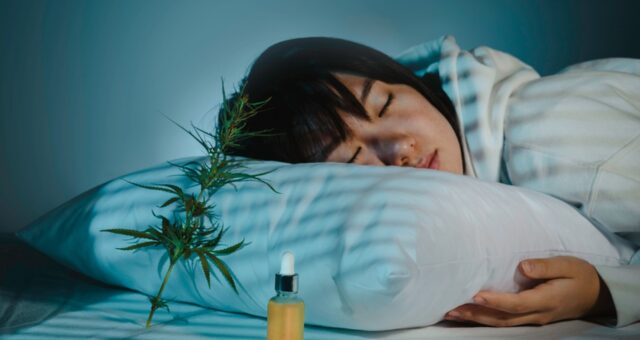Medically Reviewed by Lucas Rosa, PhD in Molecular Biology
Ever wonder why your eyes get heavy at night or why you feel wide awake in the morning? That’s your body’s internal clock doing its thing, and melatonin is one of the key hormones running the show.
Melatonin is often called the “sleep hormone” because of its big role in helping you fall asleep and stay asleep. But there’s more to it than just bedtime.
From regulating your circadian rhythm to influencing your immune system, melatonin is a silent superhero that deserves some spotlight.
In this blog, we’ll break down what melatonin is, how it works, where it’s made, and how you can naturally support its balance – no prescription needed.
What is Melatonin?
Melatonin is a hormone that regulates your sleep-wake cycle, also known as your circadian rhythm. When the sun sets and it gets dark, your brain starts releasing melatonin to tell your body it’s time to wind down. Think of it as your body’s natural “sleep switch.”
Melatonin isn’t a sedative that knocks you out instantly, it just gently nudges your brain into “sleep mode.” That’s why it’s often used as a natural sleep aid, especially for people dealing with insomnia or jet lag. (1)
Where is Melatonin Made?
Melatonin is produced in the pineal gland, a small, pea-sized gland located deep in the center of your brain. This gland is light-sensitive, meaning it responds to the amount of light your eyes receive.
When it’s dark, melatonin production ramps up. When it’s light, production slows down or stops. That’s why screen time before bed can mess with your sleep – it tricks your brain into thinking it’s still daytime.
A small amount of melatonin is also made in other body parts, like the gut and eyes, but the pineal gland does the bulk of the work when it comes to regulating sleep.
What Does Melatonin Do in the Body?
Melatonin’s biggest job is to manage your body’s internal clock, but it also plays other important roles:
- Promotes healthy sleep cycles
- Improves sleep quality and timing
- Acts as a powerful antioxidant
- Supports immune function
- Helps regulate blood pressure
- Supports eye and reproductive health
In short, melatonin doesn’t just help you sleep – it helps your body recover, repair, and recharge while you’re resting.

How Does Melatonin Get Out of Balance?
Your body is pretty good at making melatonin, but modern life can throw it off balance. Here are some common culprits:
- Excessive Screen Time at Night: Blue light from phones, laptops, and TVs can block melatonin production.
- Irregular Sleep Schedules: Going to bed and waking up at different times confuses your circadian rhythm.
- Caffeine or Alcohol Late in the Day: These can disrupt your body’s natural melatonin release.
- Night Shift Work: Working when it’s dark and sleeping during the day throws off melatonin timing.
- Jet Lag: Crossing time zones disrupts your natural light-dark cycle.
- Chronic Stress: High stress levels and cortisol can reduce melatonin output.
When melatonin is out of sync, you might struggle to fall asleep, wake up in the middle of the night, or feel groggy in the morning.
Signs Your Melatonin Might Be Out of Balance
Not sure if your melatonin levels are off? Here are a few signs that might indicate a disruption:
- Trouble falling asleep at night
- Waking up too early or in the middle of the night
- Feeling tired during the day, even after enough sleep
- Difficulty focusing or remembering things
- Feeling moody or anxious
- Struggling with seasonal depression (especially in winter)
If any of these sound familiar, your melatonin rhythm might need a little tuning.
Natural Ways to Keep Melatonin Balanced
There are plenty of ways to support healthy melatonin production – all without needing a pill. Here’s how you can help your body do it naturally:
1. Get Morning Sunlight
Natural light in the morning helps reset your circadian rhythm and tells your body when to start and stop making melatonin. Try to get at least 20 minutes of sunlight soon after waking up. (2)

2. Avoid Screens Before Bed
Blue light from phones, TVs, and laptops blocks melatonin production. Power down at least an hour before bed or use blue light filters and night shift modes on electronic devices.
3. Stick to a Sleep Schedule
Going to bed and waking up at the same time every day trains your internal clock and supports natural melatonin rhythms. (3)
4. Keep Your Bedroom Dark and Cool
Melatonin is stimulated when it’s dark, and a cool room can promote quality sleep. Use blackout curtains, cover any bright electronics, and aim for a room temperature around 65–70°F (18–21°C).
5. Eat Melatonin-Rich Foods
Some foods naturally contain melatonin or help your body produce more of it: (4)
- Tart Cherries
- Bananas
- Oats
- Milk
- Eggs
- Walnuts
6. Avoid Caffeine and Alcohol at Night
Caffeine blocks melatonin (5), and alcohol disrupts your natural sleep cycle. Try to cut off caffeine by early afternoon and limit alcohol before bedtime.
7. Wind Down with an Evening Routine
Gentle evening routines like reading, stretching, or sipping herbal tea tell your brain that it’s time to wind down and promote natural melatonin production.

When to Seek Professional Help
Sometimes lifestyle changes aren’t enough. You should talk to a healthcare provider if:
- You regularly struggle to fall or stay asleep
- You feel tired all day, even with 7–9 hours of sleep
- You work night shifts or travel often and can’t adjust
- You have signs of insomnia, depression, or seasonal affective disorder
A doctor can check for hormone imbalances or sleep disorders and may suggest short-term melatonin treatment options.
Conclusion
Melatonin is your body’s built-in sleep guide – helping you fall asleep, stay asleep, and feel refreshed in the morning.
But in today’s always-lit world, your melatonin production can easily get thrown off. By natural light exposure, creating a calming bedtime routine, and giving your body the right nutrients, you can help your melatonin work the way it’s supposed to, without needing artificial sleep aids.
After all, better sleep doesn’t just feel good – it helps you thrive.
References
- National Center for Complementary and Integrative Health. “Melatonin: What You Need to Know.” National Center for Complementary and Integrative Health, May 2024, www.nccih.nih.gov/health/melatonin-what-you-need-to-know. https://www.nccih.nih.gov/health/melatonin-what-you-need-to-know.
- Karami Z, Golmohammadi R, Heidaripahlavian A, Poorolajal J, Heidarimoghadam R. Effect of Daylight on Melatonin and Subjective General Health Factors in Elderly People. Iran J Public Health. 2016 May;45(5):636-43. PMID: 27398336; PMCID: PMC4935707. https://pmc.ncbi.nlm.nih.gov/articles/PMC4935707/.
- Zisapel N. New perspectives on the role of melatonin in human sleep, circadian rhythms and their regulation. Br J Pharmacol. 2018 Aug;175(16):3190-3199. doi: 10.1111/bph.14116. Epub 2018 Jan 15. PMID: 29318587; PMCID: PMC6057895. https://pmc.ncbi.nlm.nih.gov/articles/PMC6057895/.
- Meng X, Li Y, Li S, Zhou Y, Gan RY, Xu DP, Li HB. Dietary Sources and Bioactivities of Melatonin. Nutrients. 2017 Apr 7;9(4):367. doi: 10.3390/nu9040367. PMID: 28387721; PMCID: PMC5409706. https://pmc.ncbi.nlm.nih.gov/articles/PMC5409706/.
- Shilo L, Sabbah H, Hadari R, Kovatz S, Weinberg U, Dolev S, Dagan Y, Shenkman L. The effects of coffee consumption on sleep and melatonin secretion. Sleep Med. 2002 May;3(3):271-3. doi: 10.1016/s1389-9457(02)00015-1. PMID: 14592218. https://pubmed.ncbi.nlm.nih.gov/14592218/.
Check Out
HF Swaps
Better products for better hormone health.









